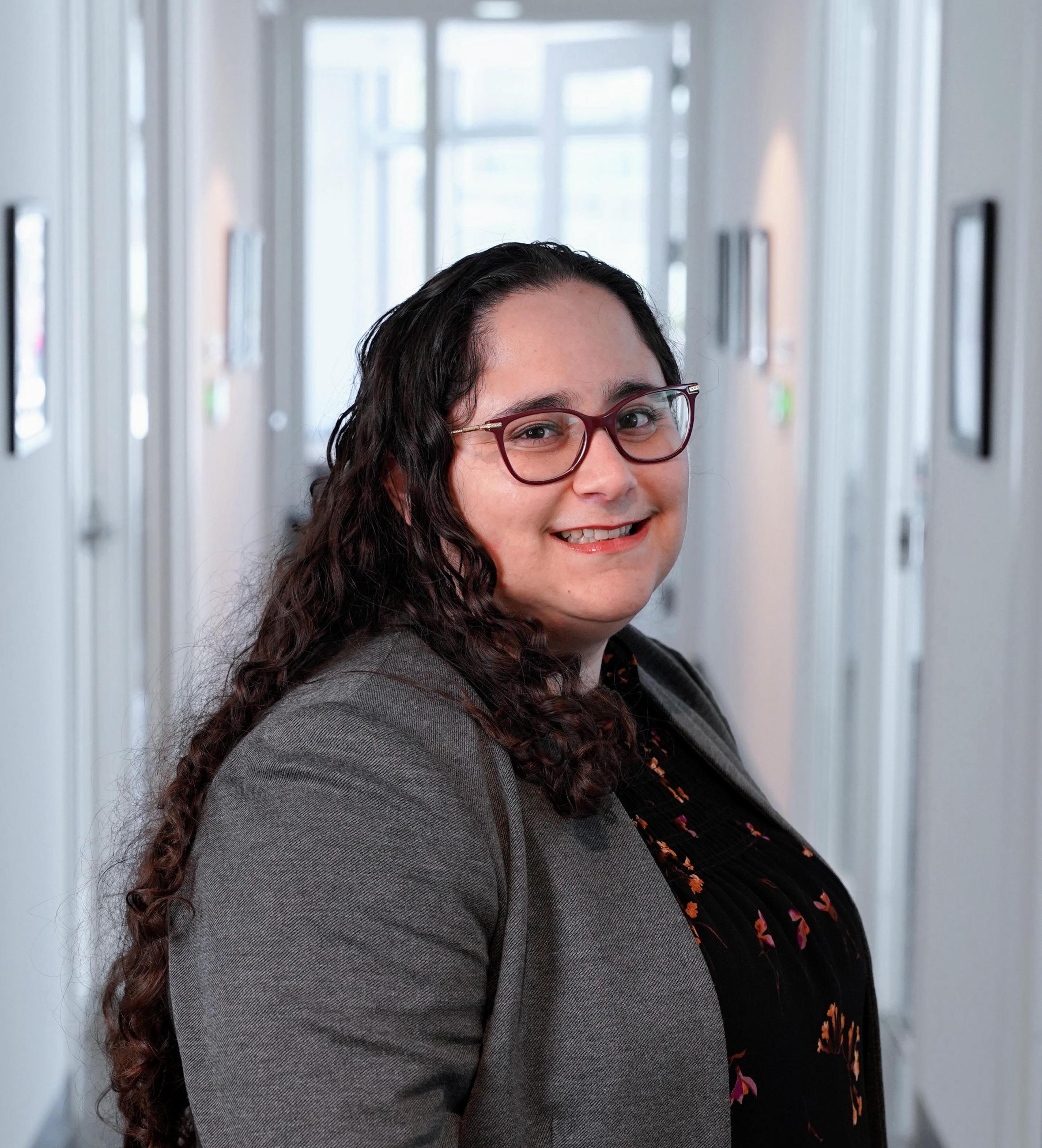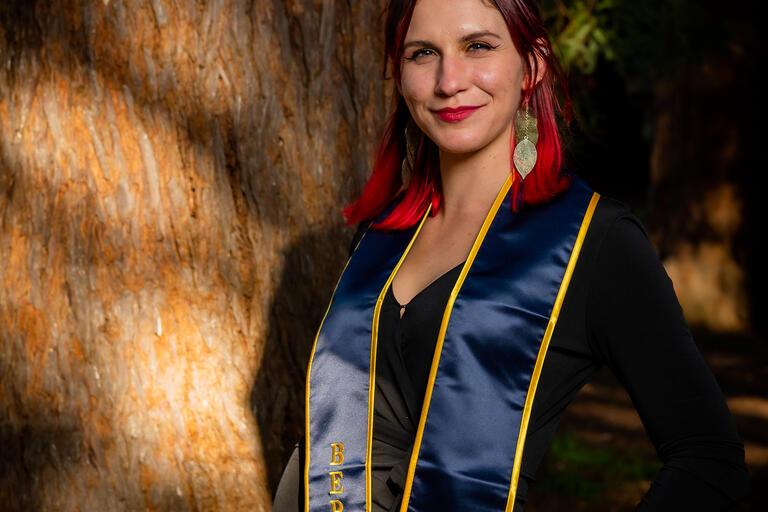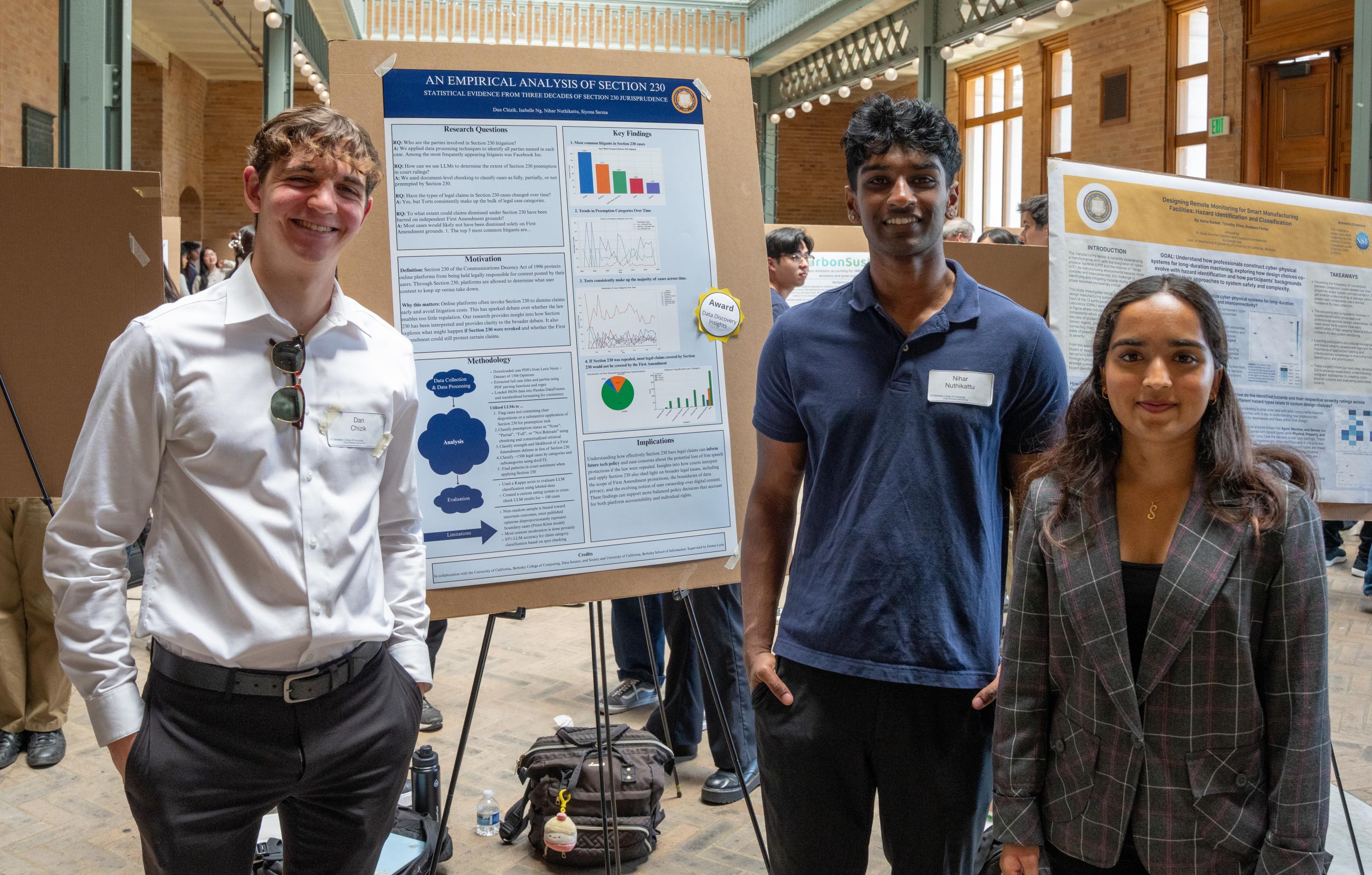When Nandita Radhakrishnan, B.A. ‘23, started at UC Berkeley with dreams of neuroscience research, she never imagined she'd end up creating policy tools that help states save millions in health care costs.
Yet that's exactly where her path led — and why she has been selected as the inaugural recipient of the Distinguished Alum Award from UC Berkeley Data Science Undergraduate Studies (DSUS). This honor, granted to one recipient annually, recognizes an alum who "has exhibited outstanding leadership, impact, or innovation" using their data science education.
The seed for Radhakrishnan’s changemaking was planted early. Growing up in Oman, she witnessed her father's concern over the hundreds of plastic water bottles collecting in trash bins outside restaurants. He devised a plan to fill his trunk with plastics and drive them to the industrial recycling bin near his office, with Radhakrishnan at his side.
“We did this every day. Nobody asked him to do it; he just saw a way to do something good,” Radhakrishnan said. “It was instilled in me to find small opportunities to impact the world.”
“Opportunities to impact the world”
Radhakrishnan’s impacts are no longer small. As a senior data scientist at Brown University's Center for Advancing Health Policy Through Research (CAHPR), she has tackled some of the most pressing questions in health care policy. Her work spans understanding the effects of hospital mergers on the affordability of patient care, corporate ownership of physician practices, and health care price variability across hospitals – all critical issues as medical costs strain American families.
One of her most innovative contributions solved a problem that had stumped researchers for years: how to link private-equity acquisition data of physician practices to pricing data when no common identifiers existed between the datasets.
"There was no nice one-to-one mapping," she said. Through months of trial and error, she developed sophisticated fuzzy and probabilistic matching algorithms that successfully merged previously incompatible datasets.
When she presented her findings at one of the largest healthcare conferences — hosted by AcademyHealth — her methodology received widespread appreciation and requests for replication across multiple research initiatives.
She didn’t stop there. Radhakrishnan developed an interactive dashboard that allows policymakers to simulate healthcare savings if they implement statewide caps to hospital payments. The simulator has gained recognition through the National Academy of State Health Policy and has directly influenced legislation in multiple states, helping curb high hospital prices.
Reflecting on her successes, Radhakrishnan emphasizes collaboration and valuing diverse skill sets. "I work with a team of people, from lawyers to health economists. Each brings a different, essential perspective, but we all have the same mission of translating our research into policy change."
Bridging research and real-world impact
Radhakrishnan didn’t always envision a career in data. As a cognitive science major, she took Data 8: Foundations of Data Science as a prerequisite. She immediately recognized how the concepts taught in the course could support her research goals.
A turning point came through her interactions with Parkinson's disease patients during a neuroscience study. They often shared their struggles and eagerly asked about breakthroughs that could improve their lives.
"We were using their data to help us understand how humans learn, and I felt uncomfortable that I couldn't tell them how we were directly helping their community," Radhakrishnan said. "That's what ultimately led me to the work at CAHPR — it wasn't just researching something for academic purposes, it was about finding solutions that would change things for real people."
Finding your data science “superpower”
When she received the Distinguished Alum Award notification, it felt "surreal." The recognition validates not only her individual achievements but also the potential for young data scientists to create meaningful change early in their careers.
And yet, filled with self-doubt, Radhakrishnan came close to not applying for the alumni awards. Then she reminded herself of a mantra that has helped her throughout her career.
“The worst they can say is no, and that’s okay,” she said. “I’ve found a lot of success in putting myself out there, but it’s still daunting. When I didn’t get a research position in undergrad, I cold-emailed postdocs and grad students in the labs I was interested in and one day, someone got back to me.”
She encourages students and alumni to face the fear of rejection to pursue opportunities they care about.
Another piece of advice she’s willing to share with others: embrace the interdisciplinary aspect of your UC Berkeley degree.
“AI may be good at analytical tasks, but it can’t take away your ability to reason. That’s your superpower,” she said. “When you’re talking with potential employers or recruiters, highlight the skills you developed in your domain emphasis. Those complimentary skills are important — they show you can find intersections between disciplines and know how to apply your skills in unique ways.”
Radhakrishnan's cognitive science background has given her insight into how people think, which emerges in her approach to work — whether iterating on the user experience of a policy tool or considering which problems to tackle next.
Perhaps her most important contribution is demonstrating that meaningful impact doesn't require decades of experience — it requires curiosity, persistence, and a commitment to translating technical skills into solutions that help people. As she prepares for her next chapter, she embodies the potential for data science to be a catalyst for systematic change.
The UC Berkeley Data Science Undergraduate Studies (DSUS) program proudly recognizes the outstanding achievements of our alumni through our annual awards program. These awards celebrate those who have leveraged their data science education to create meaningful impact in their communities, industries, and at Berkeley.



